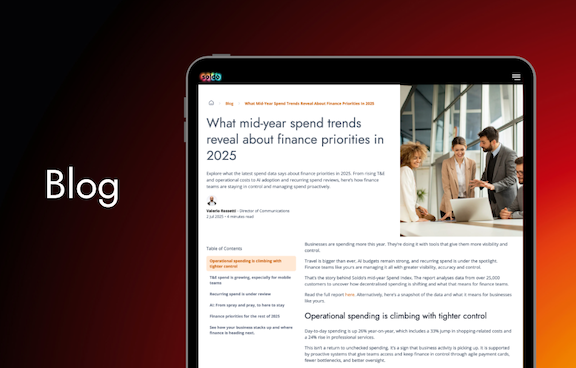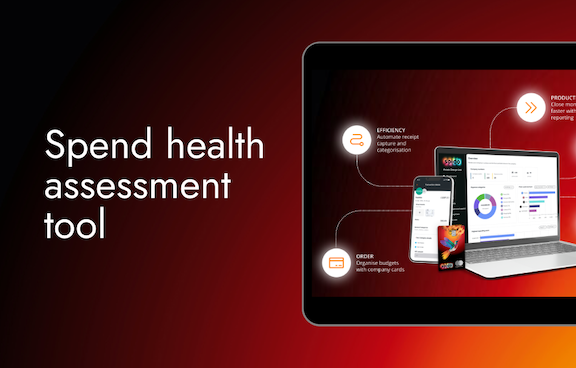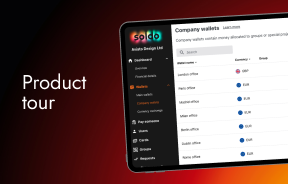During her tenure as CFO, Jeannie De Guzman has seen 1Password grow from 180 employees to over 520. That organizational growth has meant large-scale changes for the finance team. And it still means leaders have the ability to have extensive influence across the company. HR, for example, falls under Jeannie’s banner, and it’s helped her learn a lot about the value of soft skills and clear communication.
Clear communication comes into play even more at a remote-first company like 1Password. 1Password was remote long before the pandemic even started, so Jeannie knows firsthand the unique challenges of managing a distributed team. She also implements particular strategies to help combat the onslaught of meetings that result from not being present in an office together.
Whether it’s partnering closely with other business units or making strategic leadership decisions, Jeannie believes finance’s role is to be a business partner, serving the rest of the organization with a customer service mindset.
Viewing her team through this lens means Jeannie values technical, analytical, and soft skills in her team members. She believes finance professionals should embrace opportunities to wear multiple hats and become well-rounded in their financial expertise. She also values clear, concise communication, especially when it comes to budget, and champions the idea that if you can’t explain something simply, you don’t understand it well enough.
In addition to being a business partner to the rest of the org, Jeannie also understands the complexities of managing a remote team and cultivating an employee-first culture. She believes that implementing as much technology and automation as possible minimizes repetitive, menial tasks and helps people do more impactful, meaningful work.
On this episode of The CFO Playbook, Jeannie discusses the importance of finance as a business partner, the balance of soft skills vs. technical skills, and the value of being a well-rounded finance professional.
Guest Analysis
Name: Jeannie De Guzman
What she does: Jeannie De Guzman is the CFO at 1Password, a $2B password management company trusted by more than 90,000 businesses. In her role as CFO, Jeannie makes sure finance functions as a valued business partner to the rest of the organization, and implements modern tools that help her people do more meaningful work.
Key Quote: “I think a successful finance professional is one that can partner with the business and can take a complex situation and really lay it out in layman’s terms. I think that’s one of the most important skill sets of any person, but in finance especially.”
Where to find Jeannie: LinkedIn
From Jeannie’s Playbook
Finance professionals need to truly partner with the rest of the business
Jeannie believes that the HR industry has created a model that works, by literally calling out their function in their job titles: “HR Business Partner.” She believes finance needs to have the same customer service mindset in relation to the rest of the company, and she’d even like to have a “Finance Business Partner” stationed in every business unit. She views finance as a strategic advisor and partner to every other department in the company, and believes it’s financial professionals’ responsibility to relay complex information like budget planning to colleagues in a digestible way.
Automation is the key to meaningful work
You may think of automation as a “nice to have,” but its impact goes deeper than simply streamlining workflows. With trends like the great resignation upon us, people want to find meaningful work. Jeannie says embracing automation allows you to eliminate repetitive, menial tasks and free up your people to do higher leverage work. When people feel like they’re making an impact and adding value to the company, they find more meaning and happiness in their jobs.
Remote work demands more from leadership
Without the opportunity for those passing hallway conversations, a lot of communication can get lost. At a remote-first company like 1Password, Jeannie says you need to combat this problem with a full on “communication cascade.” Over communicate, encourage your teams to get together, and protect your calendars from an overload of meetings. Jeannie says if she needs heads-down focused time on something, she has to block the time off on her calendar or it’s sure to get gobbled up by another meeting.
Welcome opportunities to be more well-rounded
If you work at a small company and get the chance to wear multiple hats, take advantage of it. Developing soft skills, learning how to communicate with non-finance professionals, expanding your technical skills–each of these areas for growth will help finance professionals advance in their careers. And rounding out your understanding of finance is a great way to set yourself on a path to the C-suite. Controllership, FP&A, treasury, tax, etc.– you don’t have to be an expert in all of them, but “knowing enough to be dangerous,” as Jeannie says, will pay off in the long run.
Episode Highlights
Embrace the opportunity to wear multiple hats
“I think it’s a trend that’s happening amongst finance leaders today– I’ve been fortunate enough to have the opportunity to do more than finance in many of my last roles…I think it’s one of the beauties of being at a small company is you get to do more than just your one thing that you might be doing at a larger company. You get to do things that you probably didn’t think you would be doing in a pure finance role. So it’s one of the things that I encourage folks that work at smaller companies to take advantage of.”
Learn to communicate differently with different business units
“You definitely have to think differently with different groups. I would say that on the finance side, it’s very analytical. I actually expect a lot of analytics from any team that I lead. So I’m a numbers based person….But on the flip side, I’ve learned a lot from how to write things to a large group of people, how to write communications, how I should communicate a bit differently when I’m talking to different groups of people…and it’s certainly helped soften up the way that I talk to different groups of people.”
How to be a successful finance professional
“I think a successful finance professional is one that can partner with the business and can take a complex situation and really lay it out in layman’s terms. I think that’s one of the most important skill sets of any person, first of all, but in finance, especially…The best finance leaders and professionals I think can sit there and really explain it in layman’s terms. And that builds really close relationships. And they have to do that anyway, because it’s part of their job. It’s part of the many things they’re supposed to be doing, is letting the business know how they’re doing financially.”
Finance should be a business partner
“We want to make sure that people feel like we’re here to partner with them and not to just lay down these rules that you must follow…Because at the end of the day, I really think that we should be partners to the organization. HR has done a really great job, they’ve already set the pathway for being business partners. They have titles in the industry to reflect that. With the finance team, at some point I’d love to just be able to call my people, ‘finance business partners’ and have one per business unit, and just be perceived in that same way.”
Automation has a bigger impact than you think
“My theory around automation is: get as much automation as you can. Because with trends like the great resignation, people want to find meaningful work. And what automation generally does is it takes out that repetitive, menial work that people feel like they’re doing on a daily basis that doesn’t give themselves or the company value. Anything super manual tends to fall into that category. And when people don’t feel like they’re finding meaningful work at work, they’re going to be looking for something else to do, because it doesn’t mean anything to them. So I think that automation is really key for obviously being efficient and closing your books and all of that good stuff that finance people do, but also to make sure that your finance people and the team are doing work that they feel is impactful to the company. So I think that’s a bigger reason why automation is actually really important for finance teams.”
Advice for aspiring CFOs: Know enough to be dangerous
“When I think about what helped me get to where I am today, it was when I saw an opportunity to do something that was outside of my role, I tried to do it. And I really tried to get a well-rounded experience in different facets of finance. Not just in controllership, not just an FP&A, not just in treasury, a little bit of tax here and there…You don’t have to be an expert in all of it, but if you could get exposure to as much as possible, it really helps you later on. Because then you know enough to be dangerous…I just think it just pays off later on because then you understand a lot more, with breadth, what everyone else is supposed to be doing on your team once you’re running the entire function.”
Top quotes:
“One of the things that I pride myself on with all of my teams is that they kind of act like a customer service department to the rest of the teams. So the finance team, certainly, the types of people that are on my team are definitely those that are personable, that can create those relationships and bonds and trust.”
“One of the CEOs I used to work with once said to me, ‘The thing that makes you really easy to work with is because you can go into the details and you thrive in details, but you can pull yourself out and then explain it from a high level.’ And so I’ve tried really hard to exercise that skill as much as I can.”
“I’m very fortunate to have a very loyal team. They work really, really hard. And you know, when I was looking for these individuals, I was really looking for people that were really resilient, nimble, flexible, because yes, they were financial experts, but because we were a smaller company at the time, I needed people to be able to wear many hats.”
“There are people that are very long-winded and go into a ton of detail. And then there are people that are really concise. I tend to lean on the crisp and concise when I’m looking at a role that needs to be talking to the business. Because you give enough detail for them to understand, but it’s not long-winded. The more long-winded, it can get confusing for someone that’s not in finance to understand a financial concept.”
“I would say one of the things that I miss about being in an office, that I haven’t personally nailed yet, is those kind of two-minute conversations in the hallway, when you pass by and you just hear something. You don’t hear any of the chatter, so you might not get little pieces of context that I used to be able to get and make the connections with. We’re still trying to figure that out a little bit and trying to over-communicate.”
“My secret is when I need heads-down focused time, I actually block off the time. I am somebody who really likes to have a lot of control over my calendar. And so when I know there’s a day of heavy heads-down work, I will block off an hour or two to make sure I can actually do it during that time. And I find that to be really, really helpful. If you don’t do that, it’ll just get booked up anyways.”
“I would say that the technical abilities of a finance person have changed over the years with all the technology that’s being used. I have an analyst on my team that can code things on the side. Like, that’s a side hustle. So incredibly technical people coming, especially all the young kids coming up, they know how to use technology better than anyone has before. And so I found that that gap is not as big as it used to be.”
“My team in particular are very tech savvy. They understand technology quite well. So I’m very fortunate to have that skill set here, but you know, it’s not their full-time job. And I want to make sure that we have somebody here where it is their full time job…So at this point in time, we think it’s worth the investment. I don’t want my controller figuring out why NetSuite’s not doing something. I want them to be looking at the actual financials. And so we’re making that investment and I think it’s really important for us.”

















